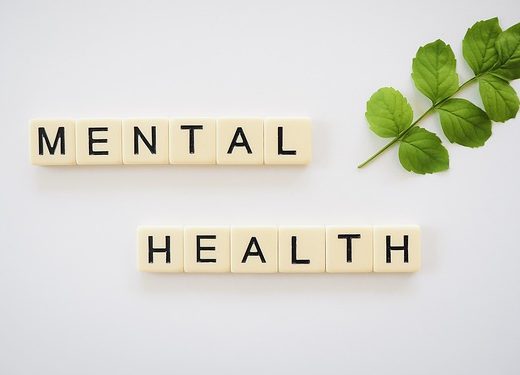Counselor vs Psychologist: Counselor versus psychologist is an issue or will I say a very confusing line of argument which has over the years been debated on by various analyst and pundits. But today we shall be taking a deeper view of this overwhelming topic.
Let’s start with knowing who or what these two people and profession is all about. First I will take the Counselor or counseling field as a start.
So who is a Counselor?
A counselor is a person who is trained to listen to people and give them advice about their problems or a person trained to give guidance on personal or psychological problems.
Then counseling is the provision of professional assistance and guidance in resolving personal or psychological problems, furthermore said to be the process of helping a person to recognize his/her strengths, discover the beliefs and emotions that are restricting his/her emotional growth by talking openly and freely to someone who is impartial and emotionally free of entanglements. A Counselor has the duty of listening, understanding, researching, communicating and giving solutions to a person problem without adding more to it during or after the process.
Then, who is a Psychologist?
According to the American Psychological Association (APA), a psychologist is a person who has professional training and clinical skills to help people learn to cope more effectively with life issues and mental health problems.
A psychologist could furthermore be said to be a person who studies or is trained in psychology (the scientific study of the mind and how it influences behaviour: social or educational); a person who studies normal and abnormal mental states, perceptual, cognitive, emotional, and social processes and behavior by experimenting with, and observing, interpreting, and recording how individuals relate to one another and to their environments. So, a psychologist is trained to administer and interpret a number of tests and assessments that can help diagnose a condition or tell more about the way a person thinks, feels and behaves.
A psychologist is trained in two major divisions according to the American Psychological Association (APA), which are namely the “applied psychology” and “research-orientated psychology”. The applied psychology or psychologist is known as “practitioners” or “professionals” while the research-orientated psychologist is referred to as “scientists” or “scholars”.
The practicing psychologist helps in tackling and treating lots of issues, people choose to consult them when they face emotional or psychological or mental health issues such as depression, anger problem and unnecessary anxiety which results in health unrest, some of the issues might also be telling in their physical health and appearance, take situations like mourning a loved one or getting sacked from your place of work which will automatically affect their diets and sound state of mind and can start resulting to weight loss and the likes. The scientist in psychology are the ones involved in seeking an understanding of the evolving properties of brains, and all the variety of phenomena linked to those emergent properties.
On the other hand, counseling or counselors are sub-divided into:
- Marriage and family counselor.
- Guidance and career counselor.
- Rehabilitation counselor.
- Mental health counselor.
- Substance abuse counselor.
- Educational Counselor.
Each field has its own requirements and discipline. Counselors have the most complex knowledge of understanding the deepest problems which can be related to psychological traces as it’s their duty to help profer a solution to every situation brought before them and you must know that in Counseling you’re mostly required to have a Masters before certification or licensure for professional practice, especially when you are gunning for the public schools, be it the elementary, middle or High school and also pertaining marriage counseling and other counseling fields, they all require a minimum of Masters in your particular discipline as a Counselor.
- They deal with issues like:
- Divorce
- Anxiety disorder
- Attention deficit disorder
- Self-esteem issues
- Depression
- Eating disorder
It’s not as if the psychologist doesn’t get to treat major issues, they do but most times you’re always referred to a counselor as the case may be but when it’s more complex or just maybe suitable for the psychologist, then you have to be at the psychologist place. They often like the counselors use a treatment method called “therapy” or “psychotherapy” for their patient too.
The psychologist also gets involved in issues like:
- Behavioral issues
- Cognitive issues
- Personal development
And many more issues even down to emotional issues, motivation and even learning problems.
You know sometimes it’s hard to differentiate these two sets of people (the psychologist and the counselor). Why? Because they almost function alike performing almost every same duty as due to the other party in the knowledge of that party too. Maybe I just confused you there (laughs). What I mean their roles are interwoven and as such are complicated in terms of differentiation (not the mathematical differentiation ooo). But nevertheless, let’s take a look at their differences if there are any existing that we may discover. I’m sure I have discovered them but have you? If you haven’t, let’s get to know them now…
Counselor vs Psychologist
- The first major difference stems from the field of research. Which being that; a counselor can’t be involved in a research or regarded to as a behavioral scientist and as such can’t work in a marketing and production field while a psychologist, on the other hand, is also known as a behavioral scientist who can get involved in research as a behavioral scientist for human resources management, marketing, and clinical research. This major difference put a huge line or barrier on both as their responsibility is neither shared or interwoven in this situation.
- Secondly, is the issue of education. A psychologist has to undergo a series of critical studies which at least will always result to having a Ph.D. or PsyD which is the doctoral program required by most states with thousands of hours of research under the supervision of a project coordinator or something of such. But the counselors can actually practice with a Bachelors degree but won’t get a good offer like the master’s degree holders who are certified in line with the state certification rule. A counselor is required to put in at most 350 to 500 hours of research and practice to get licensure while that is almost one-third of the psychologist requirements to get certified. Also, the number of years used in getting educational certification is different and a counselor could be ready in two to years after doing his or her master’s or doing his or her Masters but it takes a psychologist 4, 5 – 7 years. Depending on your pace as a learner or students
- Not to forget, a Counselor is not trained nor licensed to carry out test nor recommend medications while a psychologist’s scope of practice typically includes administration of a wide range of tests including IQ tests and tests of neurological function. This is a special training given to the psychologist in ord r to help treat psychological issues and also get the ability to diagnose and recommend medications.
- The use of psychotherapy: both disciplines use psychotherapy but the use of this mental treatment vary as there are deeper functions of psychotherapy which is not delegated to the hands of the counselor but in the hands of a psychologist. What I mean is this; uncovering an addiction which was caused by an abuse of many years ago might need deep research and mental therapy also mindset control, this therapy and research could take years or might mean dating back to years of forgone activities, a counselor can’t handle such a scenario but a trained psychologist can as it is their job to carry out deep behavioral research.
- A psychologist is hardly found working in the marital field or the educational surroundings but the counselors are often found and needed in this environment as they mostly encounter and desire immediate solutions which are within the ability of a counselor. Marital advise isn’t done by a psychologist, rather, it is done by a marriage counselor. You hardly hear things like marriage psychologist nor school psychologist but these are common in the counseling fields.
- Specifically, it’s more advisable that you visit a psychologist if you require a specific mental treatment because that’s the specialization of a psychologist, not a counselor. A counselor is thought on how to handle broad issues but only with the talking therapy and nothing else and sometimes we require more than that so the best available option is to visit a psychologist.
- Counselors perform less clinical research than the psychologist. The psychologist is required to carry out clinical research than a counselor and their research are lengthy especially the ones they do during their doctoral program while counselors can complete their clinical research in the maximum space of two (2) years and get certified.
- A psychologist can use the counselor’s technique but a counselor can’t use a psychologist technique to handle his or her case, especially if it’s deep and complicated then it’s a forwarded to a psychologist who will be involved in psychotherapy mode of treatment and diagnosing the patient
- One major difference between the two is that; a Counselor focuses his attention on what is happening to the person currently and tries to get a solution. For the issue which is great and nice but the psychologist will come from another aspect entirely. What do I mean? A psychologist like a counselor took will take a look at your present condition but will also trace the events to when you grow up and try to see if there was any disfigures of growth or alteration of any mental balances as a kid so as to ascertain a results
- A psychologist is an expert in human behaviours and mental who uses the scientific method to study how the elements that affect the way people think, feel and learn and other mental processes while a counselor is specialized in applying needed therapies to help the patient solve immediate or existing problems while engaging them for a short time.
- Psychologist and counseling can be in:
| Psychologist | Counselor |
| Clinical psychology | Family and relationship counselor |
| Behavioural psychology | Rehabilitation counselor |
| Marketing and research | Carrier and guidance counselor |
| Humay resource management | Drug and alcohol counselor |
It doesn’t end there, there are also some major similarities between these two. They stem from being both psychological fields. But let’s take a look at their similarities.
- They are both psychotherapists who offer to counsel; a psychologist and a counselor both perform this function of offering talking therapy or counseling to the patient as they get to understand each other.
- They both offer Psychological solutions to people with Psychological problems and they help in observing them
I guess those are the two major similarities between a counselor and a psychologist.
Are you planning on choosing between the two? Either one you end up choosing is always a great pick. But, have you considered the length of period before certification, have you considered income and have you thought about your personal desire and how it fits into these two. If not, then you have an assignment to carry out before picking one between the two of them.
This compilation took deep research and study. So all information given above are valid but you can always research for deeper conviction or more knowledge as the case may be. Do well to understand what you see here because the two discipline is very confusing. The internet sometimes replaces psychologist with a counselor for their known reasons, maybe because counseling or counselor sounds more appealing to a psychologist. You know many of us tend to also misinterpret s psychologist for a psychiatrist too and that’s another line I might venture into to dig out their differences later on.
Remember the key difference is “if you have an issue requiring urgent help which isn’t going to be needing medications or deep psychological research then – the counselor – is your pick but if it’s deeper than what a Counselor can handle, seek a -psychologist-”
Thank you for your patience and I hope we both accomplished our mission as the writer and reader. If not, signify in the comment box, let’s know where you need more info.





No Comments